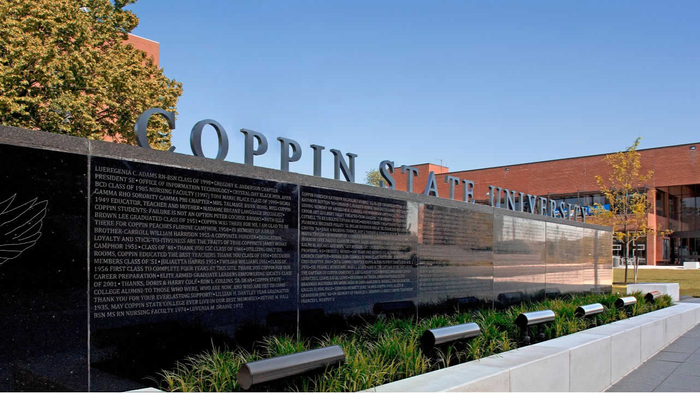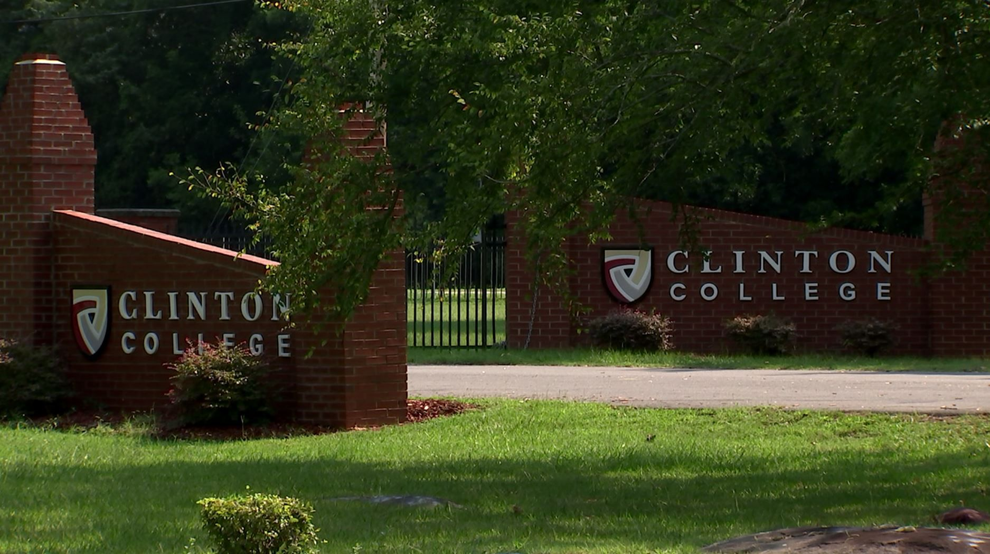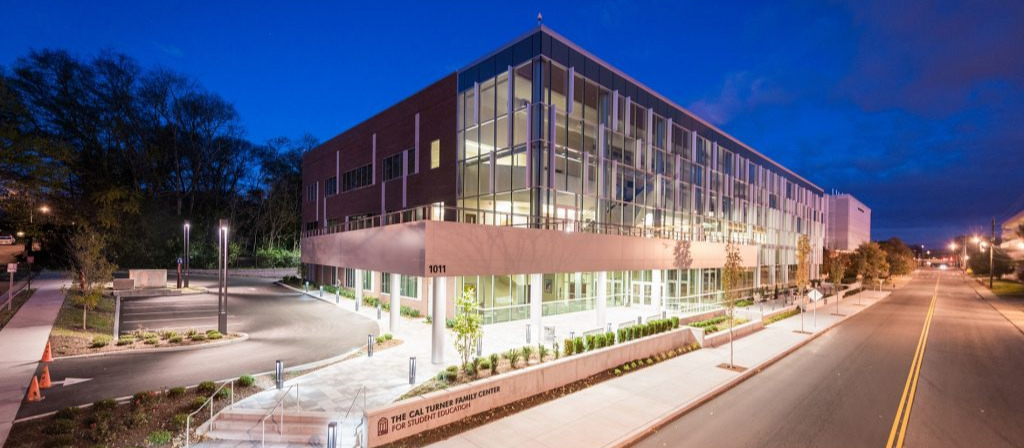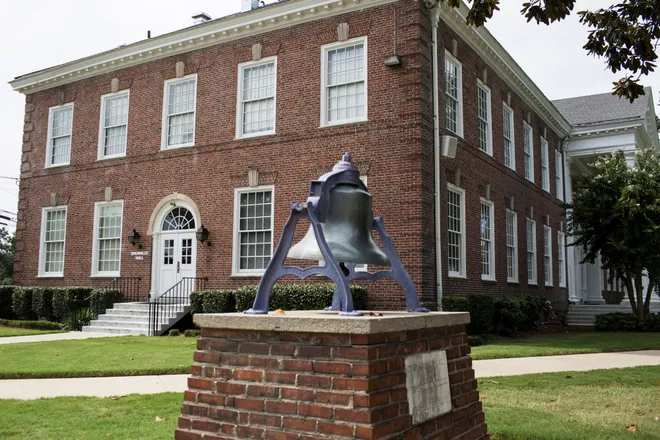
Explore HBCU – Coppin State University
Coppin State University is a public historically black university located in Baltimore, Maryland.
Background
Coppin was founded in 1900 after the Baltimore City Board of Education began a one-year course for the training of African-American elementary school teachers at the Colored High and Training School (later renamed Frederick Douglass High School in 1925). Classes began in January of 1901, and by 1902 the program expanded to include a two-year Normal Department—dedicated to the establishment of norms and standards for the training of teachers. Seven years later, the department was separated from the high school and moved to its own building at Saratoga and Mount Streets. This facility would come to be renamed the Fanny Jackson Coppin Normal School, in honor of Fanny Jackson Coppin, a pioneering figure in teacher education who was born into slavery.
By 1938, the Normal School became Coppin Teachers College, the curriculum was lengthened to four years, and the Bachelor of Science degree was able to be granted. Coppin would go on to become part of the higher education system of Maryland and subsequently renamed Coppin State Teachers College, before moving to its current 38-acre campus.
Approximately 10 years later, Coppin’s Board of Trustees ruled to expand the institution’s degree-granting authority to more than teacher education; this allowed for the conferring of Bachelor of Arts degrees and the name change to Coppin State College. Additionally, Coppin also took over Rosemont Elementary School in 1998 and is the first and only institution of higher education in Maryland to manage a public school.
Now, and in the subsequent years to follow, Coppin State University continues to bring the dreams of its students to completion.
Programs & Opportunities
Coppin State University is organized into the School of Graduate Studies, and five colleges: the School of Arts, Sciences, and Education, the School of Behavioral and Social Sciences, the School of Business, the School of Health Professions, and the School of Honors.
With 750 plus courses, over 50 areas of study, and a 13:1 student-faculty ratio, Coppin State challenges students to achieve and excel. Students graduate with skills that translate across jobs, industries, and markets. In addition, a robust campus community gives students access to state-of-the-art facilities, student activities, clubs and organizations, and campus leadership opportunities.
Learn more about Coppin State University here.
Alumni Affairs
At Coppin State, thousands of alumni go on to make tremendous impact in the state of Maryland and beyond, in various fields, and particularly in Human Services.
Some Coppin State University notable alumni include, but are not limited to:
- Verda Welcome—Maryland state senator, teacher, and civil rights activist—graduated from Coppin State with a bachelor’s degree in history.
- Stephanie Ready—broadcaster for the NBA as well as the first female coach of a men’s professional league team—graduated from Coppin State University cum laude with a bachelor’s degree in psychology.
- Bishop L. Robinson—first African American police commissioner of Baltimore, Maryland—earned a master’s degree in education from Coppin State but chose to enter law enforcement.
- Raheem DeVaughn—BET award winner, Grammy-nominated artist, singer, and songwriter—is reported to have had an epiphany early in his college career at Coppin State University when he saw a group of street corner singers that turned his focus to becoming a professional singer.
Financial Information
Coppin’s Office of Financial Aid is the university resource for all questions about paying for school. The office focuses on helping students, parents, and families through federal and state financial aid processes, as well as providing a wealth of information on private funding opportunities.
Depending on student resident and class classification status, cost of attendance may differ. For undergraduate Maryland residents, cost of attendance can equal an estimated $25,088 for students living on campus, $26,232 for students living off campus, $21,188 for students commuting or living with a guardian; tuition is $4,740 per academic year. For undergraduate non-Maryland residents, cost of attendance can total to an estimated $31,614 for students living on campus, $32,758 for students living off campus, and $27,718 for students commuter students or those living with guardians; tuition is $11,266 per academic year.
For graduate students, tuition for an academic year total to $6,318 for Maryland residents and $11,624f or non-Maryland residents. For doctoral students, Maryland resident tuition totals to $12,576 for an academic year while non-resident tuition totals to $19,336.
Conclusion
Coppin State University has a culturally rich history as an institution dedicated to providing quality educational programs and outreach services for the community. A fully-accredited institution, Coppin serves Baltimore residents and students from all around the world.
Learn more about Coppin State University here.
Sources:
- https://www.findmyhbcu.org/school/coppin-state-university/
- https://www.coppin.edu/about/coppin-pride/csu-history
- https://msa.maryland.gov/msa/mdmanual/25univ/coppin/html/copf.html
- https://www.coppin.edu/all-academic-programs
- https://www.coppin.edu/academics/majors-minors-and-concentrations
- https://www.coppin.edu/student-life
- https://blackthen.com/verda-freeman-welcome-educator-civil-rights-leader-maryland-state-senator/
- https://onnidan.com/newsroom/jul-2015-jun-2016/3822-coppin-state-alum-stephanie-ready-named-fox-sports-nba-game-analyst.html
- https://www.encyclopedia.com/education/news-wires-white-papers-and-books/robinson-bishop-l-1927
- https://rickeysmileymorningshow.com/2319869/rock-ts-hbcu-spotlight-raheem-devaughn-coppin-state-university-watch/
- https://top40-charts.com/artist.php?aid=5921
- https://www.coppin.edu/tuition-and-aid/office-financial-aid
- https://www.coppin.edu/tuition-and-aid/cost-attendance
Pictures:
- Coppin State Logo: https://www.coppin.edu/about/coppin-pride
- Coppin State Campus: https://www.cannondesign.com/our-work/work/coppin-state-university-science-and-technology-center/
- Coppin State Students: https://www.coppin.edu/taxonomy/term/375
- Coppin State Sign: https://hbcuconnect.com/content/368019/coppin-state-university-provides-over-1-000-000-in-student-relief



